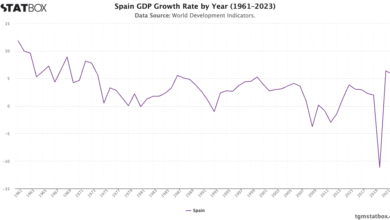Federal Reserve Interest Rates: No Cut Expected This Week

Federal Reserve interest rates play a crucial role in shaping the economic landscape of the United States. As the Federal Reserve prepares for its upcoming FOMC meeting, all eyes are on the anticipated decision regarding interest rate adjustments. Despite mounting pressure for an interest rate cut, particularly from notable figures such as Jerome Powell, the prevailing sentiment within the committee suggests a cautious stance. The meeting this week is likely to echo the discussions from June, focused more on maintaining the current monetary policy rather than implementing drastic changes. With various narratives and intriguing subplots emerging, the implications of the Federal Reserve’s interest rate decision will reverberate throughout the financial markets.
In the realm of economic management, the monetary policy dictated by the Federal Reserve is pivotal in influencing financial conditions nationwide. The decisions made during the Federal Open Market Committee sessions are essential in determining the pulse of interest rates, which affect everything from consumer loans to corporate financing. Debt adjustments and financing costs hinge on these rates, making the Fed’s upcoming deliberations a key point of interest for economists and market analysts alike. As the dialogue surrounding potential shifts intensifies, particularly in a climate influenced by political pressures and economic indicators, the Fed’s decision-making process takes center stage. The interplay between policymakers and broader economic realities will shape the direction of interest rate policies in the months to come.
The Implications of the Federal Reserve Interest Rate Decision
The Federal Reserve’s interest rate decision holds significant implications for the broader economy and financial markets. Market participants closely monitor the outcomes of FOMC meetings, as they can influence everything from mortgage rates to stock market performance. With the Fed likely to maintain its current stance at 4.25%-4.5%, this week’s decision appears to be a strategic move aimed at stabilizing the economy amid ongoing trade discussions and mixed data on inflation. Furthermore, by refraining from cuts, the Fed signals its commitment to sound monetary policy, which reassures investors that it is not simply yielding to external pressures, including those from the White House.
Moreover, maintaining interest rates could also be interpreted as a confidence booster for businesses and consumers alike. A stable rate environment might encourage corporate investment and lending without the volatility associated with quick policy shifts. However, this decision is not without its complexities, as lower rates can often spur inflation if economic growth remains robust. Thus, the Fed’s careful navigation through these considerations highlights its dual mandate of promoting maximum employment and stabilizing prices.
Jerome Powell’s Leadership and Its Effects on Monetary Policy
As the Federal Reserve Chair, Jerome Powell plays a pivotal role in shaping monetary policy and guiding the FOMC’s decisions. His leadership is particularly scrutinized during periods of economic uncertainty, such as those experienced recently due to geopolitical tensions and rising tariffs. Powell’s comments and strategies are vital for shaping market expectations, and as such, they create ripples throughout the economy. For instance, his ability to communicate the Fed’s decisions effectively mitigates market speculation about future cuts or hikes, creating a more predictable economic environment.
Additionally, Powell has faced significant political pressure, with notable challenges coming from President Trump, who has publicly criticized his leadership style and the Fed’s refusal to cut rates. This dynamic elevates the importance of Powell’s role, as he must balance the Fed’s independence with political realities. Powell’s articulation of the Fed’s rationale during press conferences is critical in maintaining public trust and economic stability. His reputation for transparency and clear communication is an asset the Fed needs to navigate the complexities of current economic conditions.
FOMC Meeting Dynamics and Potential Opposition
The FOMC meetings serve as critical junctures in determining the future course of monetary policy, particularly regarding interest rates. These gatherings allow for essential discussions that can lead to consensus or dissent among committee members. Recent developments suggest a potential shift in dynamics as Governors Christopher Waller and Michelle Bowman express willingness to oppose the committee’s strategy to maintain current rates. Such dissent would mark a notable moment in recent Fed history, indicating a fragmentation of opinions among the decision-makers.
This potential for dissent underscores the complexities facing the FOMC, as differing viewpoints can lead to uncertainty about the Fed’s future direction. If Waller and Bowman vote against the prevailing strategy, it may signal divisions within the committee, prompting market analysts to pay closer attention to the Fed’s communications and subsequent actions. Such internal discourse can influence perceptions regarding the Fed’s commitment to its mandates and the effectiveness of its policies, further complicating the economic landscape.
Understanding the Economic Landscape Ahead of Interest Rate Adjustments
Navigating the economic landscape before significant interest rate adjustments involves a detailed analysis of numerous indicators, including inflation rates and labor market conditions. The Fed’s approach to policy-making hinges on these data points to gauge the overall economic health. Despite calls from some committee members for a rate cut, discrepancies in economic indicators complicate the decision-making process. The mixed signals regarding inflation and employment highlight the challenges the Fed faces in making informed judgments about the future direction of rates.
Furthermore, the backdrop of international trade tensions adds another layer of complexity. Tariffs imposed by the current administration have raised questions about their inflationary effects, leaving the Fed with limited clarity on when or whether to adjust rates. As the committee considers these varied elements, the need for a balanced approach becomes evident. The Fed must weigh the urgency for easing rates against the possible long-term ramifications on inflation and economic stability.
Market Reactions to Federal Reserve Announcements
Market reactions to the Federal Reserve’s interest rate announcements can be swift and impactful, affecting everything from stock prices to bond yields. Investor sentiment often hinges on the Fed’s statements and the perceived direction of future monetary policy. If the committee signals a commitment to retaining current rates, this might assuage fears of inflation and provide a stable environment for investment decisions. Conversely, unexpected cuts can lead to short-term volatility as markets adjust to new economic realities.
Analysts highlight that market participants frequently look for clues in Powell’s post-meeting press conferences. His tone, word choices, and responses to questions can lead to significant shifts in market expectations. This interplay between the Fed and financial markets illustrates the critical role monetary policy plays in shaping economic stability. As investors remain alert to changes in the Fed’s approach, they must also consider external factors, such as geopolitical events, that could sway the central bank’s actions.
The Impact of Federal Reserve Decisions on Housing Markets
The Federal Reserve’s decisions related to interest rates have profound implications for the housing market, particularly as mortgage rates directly influence housing affordability and demand. When rates are low, borrowing costs decrease, making home purchases more accessible for many buyers. This increased affordability can lead to a surge in housing demand, benefiting builders and real estate agents alike. Conversely, keeping rates steady or increasing them could dampen home sales, leading to slower growth in the housing sector.
Additionally, the Fed’s approach to interest rates impacts investor behavior and the overall health of the real estate market. Investors typically seek opportunities to purchase properties when financing is affordable, which encourages development and renovations. If the central bank opts to delay cuts this meeting, potential homebuyers might remain hesitant about entering a more expensive market, particularly in light of high mortgage rates. Thus, understanding the Fed’s decision-making processes is crucial for stakeholders in the housing market.
Challenges Facing the Federal Reserve in Policy Implementation
Implementing effective monetary policy presents numerous challenges for the Federal Reserve, particularly in the current economic environment. Uncertainty stemming from global trade tensions, inflationary pressures, and varying economic indicators complicates the committee’s decision-making process. These challenges necessitate thorough analysis and continued adaptation to shifting economic conditions before making any substantial rate changes. The Fed’s ability to remain proactive while also responding to real-time data is critical for maintaining economic stability.
Furthermore, the Fed’s journey towards policy implementation must consider the potential repercussions of its decisions on financial markets and public perception. As the committee deliberates, there’s a pressing need for coherent communication to minimize confusion and speculation among the public and investors. If the Fed appears unclear in its intentions, it risks undermining confidence in its long-term strategies. Therefore, addressing these challenges effectively is paramount for the Federal Reserve to fulfill its dual mandate.
Future Prospects for Interest Rate Adjustments and Economic Stability
As the Federal Reserve considers its next steps regarding interest rates, the future landscape remains uncertain. Many analysts predict that while this week’s decision may reaffirm a cautious approach, the possibility for adjustments in future meetings remains on the table, particularly in September. Economic data trends in housing, labor, and inflation will play pivotal roles in shaping these decisions, and even subtle shifts in these indicators could influence market expectations significantly. The Fed’s cautious stance now may well set the tone for how it navigates potential economic turbulence ahead.
In light of evolving economic dynamics, the ongoing scrutiny of U.S. monetary policy will likely persist. Investors and economists will continue to analyze every word from Powell and other Fed officials, searching for insights about the probable course of action. The balance between responding to immediate economic pressures and maintaining long-term stability will define the Fed’s challenges as it moves forward. Consequently, the prospect of interest rate adjustments remains a crucial focal point for forecasting the overall trajectory of the U.S. economy.
Frequently Asked Questions
What is the current Federal Reserve interest rate policy?
As of the latest Federal Reserve meeting, the interest rate is maintained in the range of 4.25% to 4.5%. The Fed has indicated that there won’t be an interest rate cut this week, aligning with the narratives from previous meetings, particularly the June FOMC meeting.
When is the next Federal Reserve decision on interest rates expected?
The next Federal Reserve decision on interest rates is expected in September. The committee has signaled that they are likely to hold off on any cuts until then, as they carefully analyze economic data and market conditions.
Who is Jerome Powell and what is his role in Federal Reserve interest rate decisions?
Jerome Powell is the Chair of the Federal Reserve. His role involves leading the FOMC and guiding monetary policy, including decisions related to Federal Reserve interest rates. Under his leadership, the Fed has focused on data-driven policies, often responding to economic indicators before adjusting interest rates.
What factors influence the Federal Reserve’s interest rate cuts?
Several factors influence the Federal Reserve’s interest rate cut decisions, including inflation rates, employment data, and overall economic growth. During recent discussions, Fed governors emphasized the unclear impact of tariffs on inflation and the need to balance labor market conditions with potential cuts.
What happened during the most recent FOMC meeting regarding interest rates?
During the most recent FOMC meeting, the Federal Reserve decided to keep interest rates unchanged, maintaining the 4.25%-4.5% range. Despite some dissenting opinions from governors advocating for a rate cut, the majority agreed that current economic conditions did not warrant an immediate reduction.
How do President Trump’s views influence Federal Reserve interest rate decisions?
President Trump has publicly urged the Federal Reserve to ease interest rates, arguing it would lower financing costs on national debt and stimulate the housing market. However, the Federal Reserve operates independently, and despite his influence on the discussion, the decision ultimately rests with the FOMC members.
What is likely to influence future Federal Reserve interest rate changes?
Future Federal Reserve interest rate changes are likely to be influenced by upcoming economic data, including inflation metrics, labor market reports, and overall economic performance. The Fed is expected to analyze this data closely before making any adjustments to rates, particularly looking ahead to the September meeting.
What term describes the collection of viewpoints on interest rate cuts within the FOMC?
The collection of viewpoints on interest rate cuts within the FOMC can be described as ‘consensus.’ Currently, there appears to be no consensus among FOMC members for a rate cut, with some advocating for maintaining the current rate until clear economic signals suggest a need for easing.
| Key Points | Details |
|---|---|
| Current Federal Reserve Stance | Expected to maintain interest rates with no cuts this week; the decision mirrors the stance from June. |
| Potential Dissenting Votes | Fed governors Christopher Waller and Michelle Bowman may oppose keeping rates unchanged, marking a significant moment since it hasn’t happened since 1993. |
| Economic Context | The Fed considers the impact of Trump’s tariffs on inflation and the pressures from the White House for a rate cut. |
| Future Prospects | The committee is likely to postpone decisions on cuts until the September meeting, with the potential for a cut being contingent on economic data. |
| Public Relations Challenges | The meeting comes amid controversies over President Trump’s criticism of Fed policy and the Fed’s efforts to manage public perception. |
Summary
Federal Reserve interest rates are poised to remain unchanged as the Central Bank prepares for its upcoming meeting this week. Despite pressures and discussions surrounding potential rate cuts, the Federal Reserve is likely to maintain its current strategy, with no significant policy changes expected at this time. Key factors influencing the decision include the possibility of dissent from certain board members, the ongoing implications of economic policies such as tariffs, and the complex interplay of political pressures stemming from the White House. The Fed’s careful navigation of these dynamics will be crucial as they consider future adjustments to interest rates.



